[ad_1]
This post may contain affiliate links. We may receive a small commission, at no cost to you, if you make a purchase. Read Disclosure.
Costa Rica is a country where adventure and affordability collide, making it an ideal destination for those seeking a new chapter in their lives.
With breathtaking natural scenery, stunning coastlines, and a culture that beckons you to go slow and relax, it’s unsurprising that more and more people are looking at living as an expat in Costa Rica, but it’s not a country for everyone.

While there are some big draws to moving to Costa Rica, there are also some drawbacks, which is why we’ve prepared this guide on the pros and cons of moving to Costa Rica as an expat, so you can decide whether it’s right for you.
Pros of Living As An Expat In Costa Rica
You might be wandering why people are considering Costa Rica as a destination to move to.
We aren’t strangers to taking risks and moving abroad, so we know the appeal of trying out a new city, or country, to spend your life in.
But for Costa Rica in Central America, there are many reasons why someone might consider it as a destination to settle. Here are some of the positive reasons to living in Costa Rica.
1. Easy to get residency

If you’re looking for a country where you could get permanent residency and buy real estate, then Costa Rica is a good option.
While you might want to test the waters before you settle down permanently, those who want the option of being able to own property can relax knowing that when the time comes, it’s easy.
To obtain permanent residency, you can look into getting pensionado (for retirees), rentista, or inversionista visas.
Each category has specific financial requirements and conditions, often involving a proof of stable income, investment in the country, or property ownership.
For instance, the inversionista visa allows individuals to qualify by investing at least $200,000 in a Costa Rican property or business.
It’s also easy to open a Costa Rican bank if you have the appropriate visa.
2. English is widely spoken
In Costa Rica, they speak Spanish, but English is widely spoken. If you have children, they can easily grow up being bilingual in both Spanish and English.
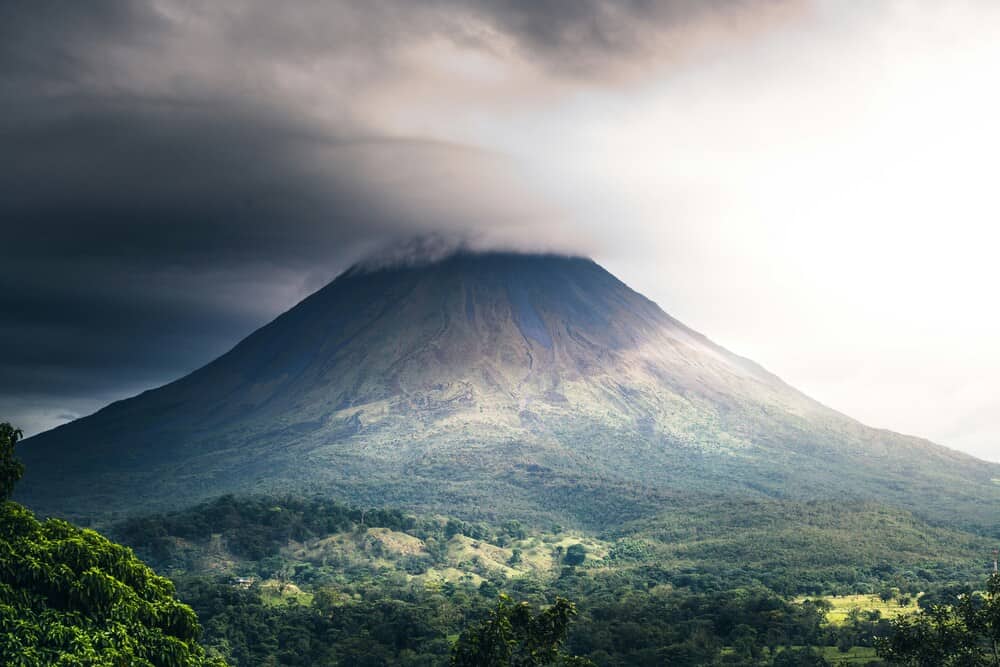
3. Affordable cost of living
Families with kids to support can breathe a sigh of relief as Costa Rica has very low cost of living when compared to North America and Europe.
While cost of living varies depending on things like location and lifestyle choices, generally you can expect prices to be much lower for all things, including rent, bills, WiFi, food and groceries etc.
As a ball park, a single person’s monthly expenses typically range between $1,000 and $2,000, covering accommodation, groceries, transportation, and entertainment.
Meanwhile, a family of four may require $3,000 to $3,500 for comfortable living.
4. Amazing nature and wildlife

It’s a well known fact that Costa Rica has amazing stunning beaches, natural beauty, and wildlife. Although it’s a popular travel destination, Costa Rica’s nature is still wild, untamed and rugged, and we found some of the best beaches in the Southern zone of Costa Rica.
It’s also a place where the wildlife is really rampant. I hope it stays that way.
When we were in New Zealand we dreamed of seeing toucans, and in Costa Rica, we had them in our garden every day.
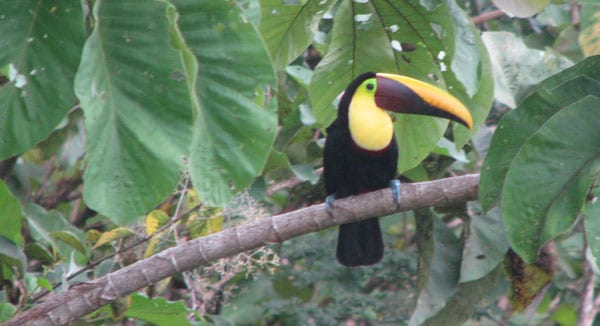
Toucans weren’t the only creature we shared our lives with. We had everything from monkeys and pizote (coati) in our trees to hummingbirds or scorpions in the house and even bats in our toilet. It was quite an experience for the whole family.
5. Pura vida lifestyle

Costa Rica’s rich culture is an irresistible perk that attracts people to living here. They follow a “pura vida” philosophy, which essentially means “pure life” in Spanish.
Costa Ricans love to embrace everything that’s good for the mind, body and soul. There’s this relaxing vibe everywhere you go, and the people are so welcoming and happy, it feeds off on you.
6. Commitment to sustainability
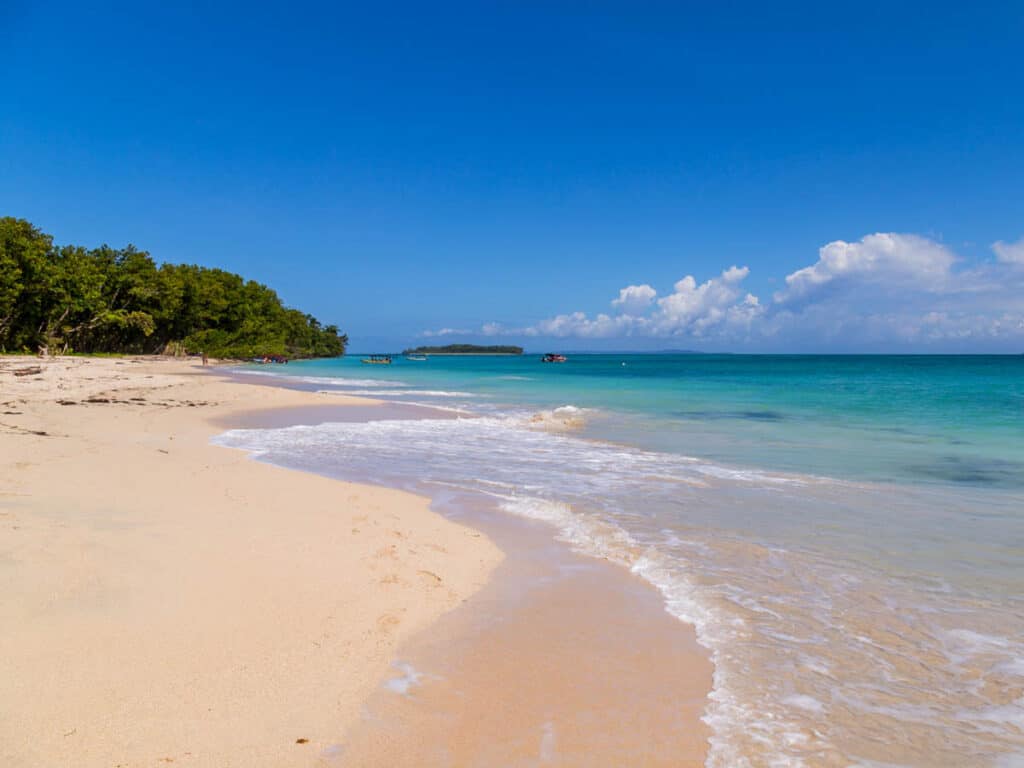
Following on from the pura visa mindset is sustainability. Because Costa Ricans value everything that’s pure, this also transpires into the environment.
Many of the country’s businesses and homes operate in a sustainable fashion. You’ll find solar energy is commonly used here as a form of electricity, and everyone recycles and reuses items to reduce waste.
From resorts to cafes to schools, sustainability and environmental conservation has been embedded in the culture of Costa Rica for quite some time. We could all take a leaf out of a Costa Rican’s book!
7. Excellent healthcare
Costa Rica’s healthcare system is one of the best in the world, and even ranks as number 36 by the World Health Organization (WHO), and number 20 by the United Nations.
This puts it above the United States in terms of quality and service.
8. Easy to make connections
While we were once glad to be the only expats in town, we realized that wasn’t fair on our kids.
We were happy to send them to a local school and immerse them in the local culture and language, but we also thought they needed other English speaking kids to hang out with.
So, in the end, having expat communities nearby in Costa Rica helped us make our Central American experience a success for the whole family. If our kids were happy, we were too.
There were no shortage of expats in Costa Rica, which made it really easy to find likeminded people with similar cultures and mindsets to us, and we made friends with other families easily.
9. Year round excellent weather
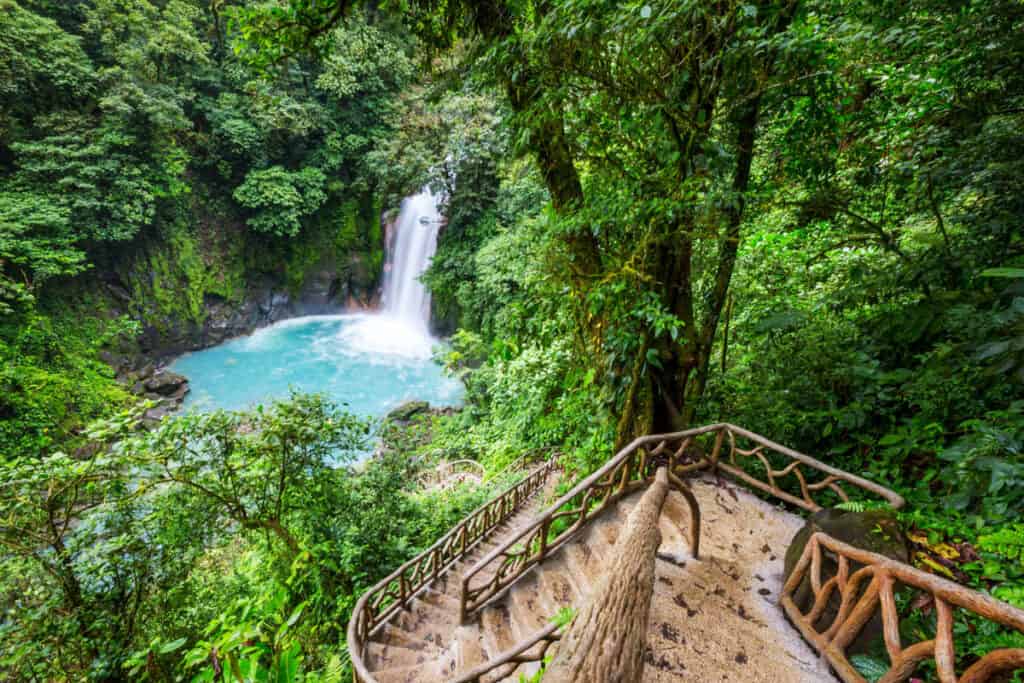
Costa Rica has a wonderful climate year round. It’s a warm, tropical climate with two seasons, the dry season and rainy season.
With temperatures typically ranging from 70 to 81 degrees Fahrenheit throughout the year, you’ll find there is no day of the year where you’ll need warm clothing.
The dry season, from December to March, is filled with sunny days, while April – November is considered the rainy season.
Cons Of Living As An Expat in Costa Rica
As with all great things, there are some downsides. Here are some of the cons of living as an expat in Costa Rica…
1. Too Touristy
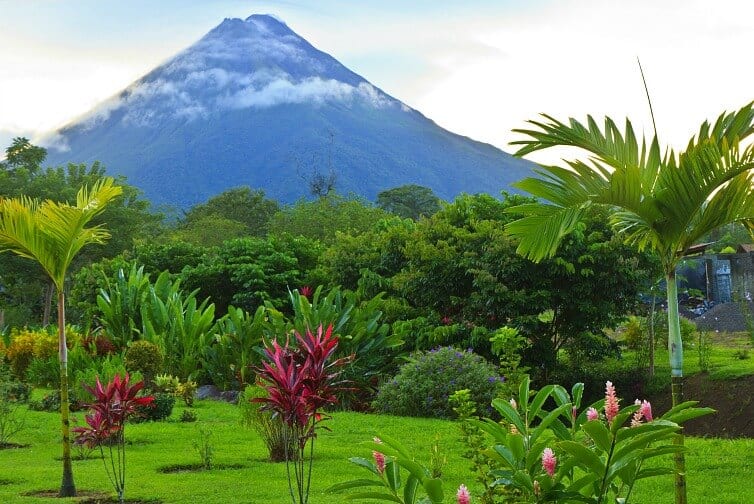
Costa Rica has grown in popularity as a tourist destination, which has sparked debates about its “touristy” nature.
The influx of visitors, particularly to well-known attractions like Arenal Volcano and Manuel Antonio National Park, has led to overcrowding and commercialization.
This surge in tourism has also contributed to rising prices, impacting the affordability of the travel experiences and tours for both locals and foreigners, too.
2. Too many expats
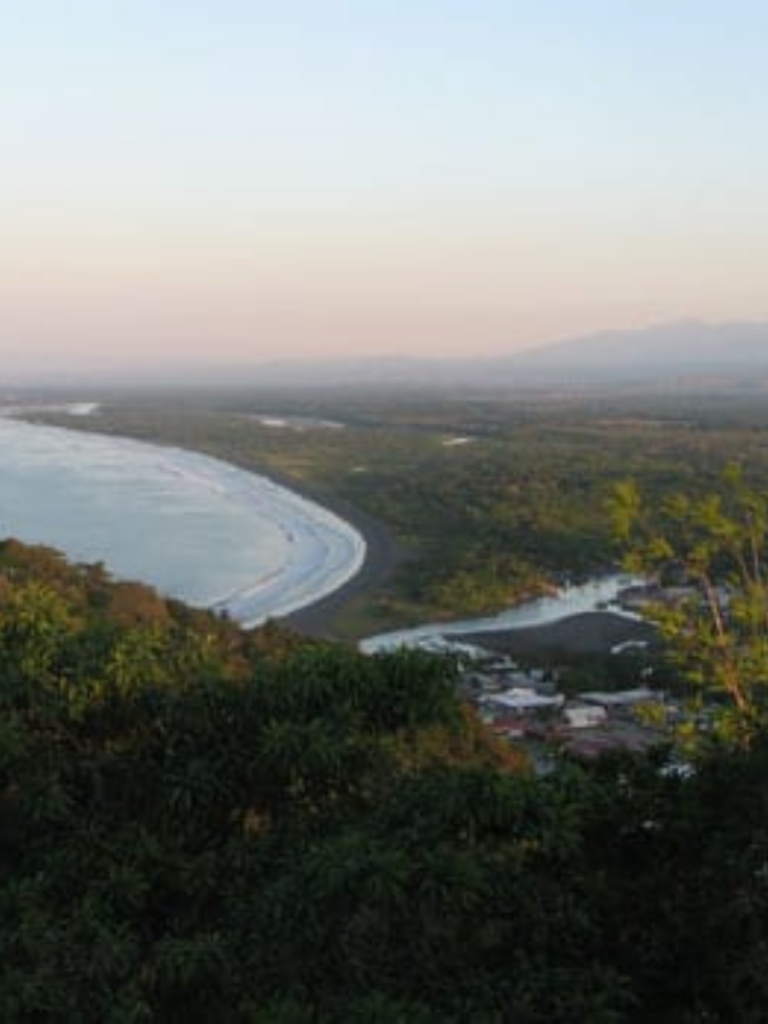
The influx of expats in Costa Rica can be a good thing and a bad thing. The downside is that the presence of expats tends to increase the price of accommodation, and in some cases gentrification, impacting local access to affordable housing.
It also takes away from the authenticity of the place, when you bump into other expats while out shopping for fresh fruits and vegetables at the local market.
As an expat, you’ll always feel somewhat of an outsider and will never be considered ticos (a term used by the locals to talk about themselves), which may also take away from the experience.
3. Not easy for kids
Living in Costa Rica as an expat child can have many benefits, such as immersion into the country’s traditions, languages, and experiences, but it also presents some challenges.
Unless kids attend an international school, there may be the possibility that they feel like an outcast because they come from a different culture and background from the other kids.
The bonus is that schools are free in Costa Rica, even international schools, so as long as you find a good school with other expat kids, this is something to consider.
4. Safety
Central America doesn’t have a great reputation for safety, and Costa Rica also doesn’t have a great reputation for safety – though generally tourists are safe as long as they stay on the tourist path.
While violent crime against is rare, petty theft such as pickpocketing and mugging is still an issue. The murder rate in Costa Rica was 11.5 per 100,000 people as of 2021, which is higher than that of the United States.
Do remember that the size of Costa Rica is much smaller, and therefore those numbers are going to seem far more scary because of this, but the fact is crime is usually isolated and not usually targeted at tourists.
The majority of the violence is linked to territorial disputes between local drug gangs, and because of this isolation, the overall crime rate is categorized as moderate.
It’s generally safe for expats in Costa Rica but you should always remain vigilant, especially regarding belongings.
5. Not easy to get a work permit
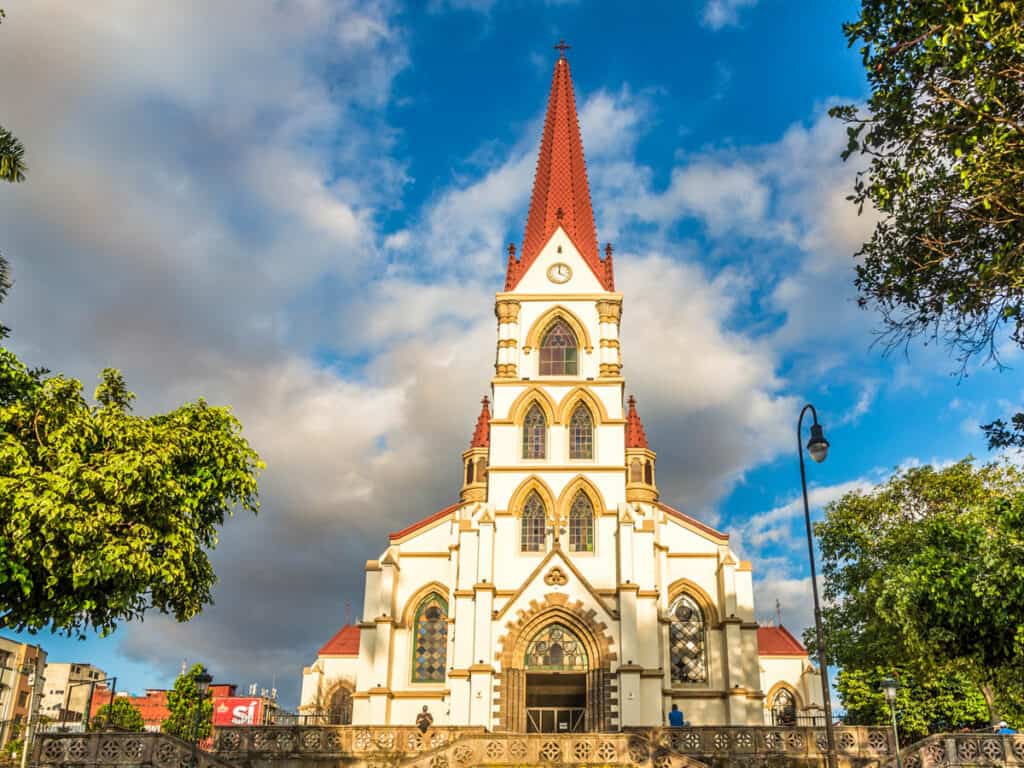
If you want to get a job in Costa Rica, it’s not easy to get a work permit unless you can demonstrate you have the skills to do a job that a local cannot.
The good news is that there are now digital nomad visas, so if you work remotely, you can work under this visa.
To make it easier, you can also join a work or study abroad program through Global Work & Travel in Costa Rica. Click here to learn more and use the discount below when you’re ready to start.
The Easy Way to Work and Travel the World
Global Work & Travel is the youth travel platform that connects travelers with opportunities to work & fund their travels abroad through cultural exchange experiences like working holiday, volunteering, au pair, study abroad, teaching and internships.
EXCLUSIVE DEAL: Just for our readers: $100 off your trip (whatever your currency) You must use the code: YTRAVEL
Final Thoughts
Eventually we packed our bags and waved adios to the tree frogs and toucans of Costa Rica and moved to Queensland, Australia, which was always plan B.
It wasn’t because there was anything wrong with our life in Costa Rica, we loved it, and would say we had a high quality of life, but as our kids got older we knew they had different needs and missed some of the comforts from back home.
While part of me still yearns for the adventure and excitement of Costa Rica, the other half rejoices that my kids go to a good school and are settled.
I’d love to go back to Costa Rica one day. In fact, I’d do it all over again! Who knows, maybe when the kids have left school, we will.
Don’t forget to check off these best things to do in Costa Rica when you arrive!
Bio: Annabel Candy was born in England but escaped as soon as she could to live in France, the USA, Laos, Zimbabwe, New Zealand and Costa Rica. She now calls Australia home and spends many long hours bashing the keyboard, sharing travel stories at Get In the Hot Spot and blogging tips at Successful Blogging.
Have you ever moved somewhere you’ve never been before? Does living in Costa Rica sound like a good spot for you? Let us know in the comments.
[ad_2]
Source link
